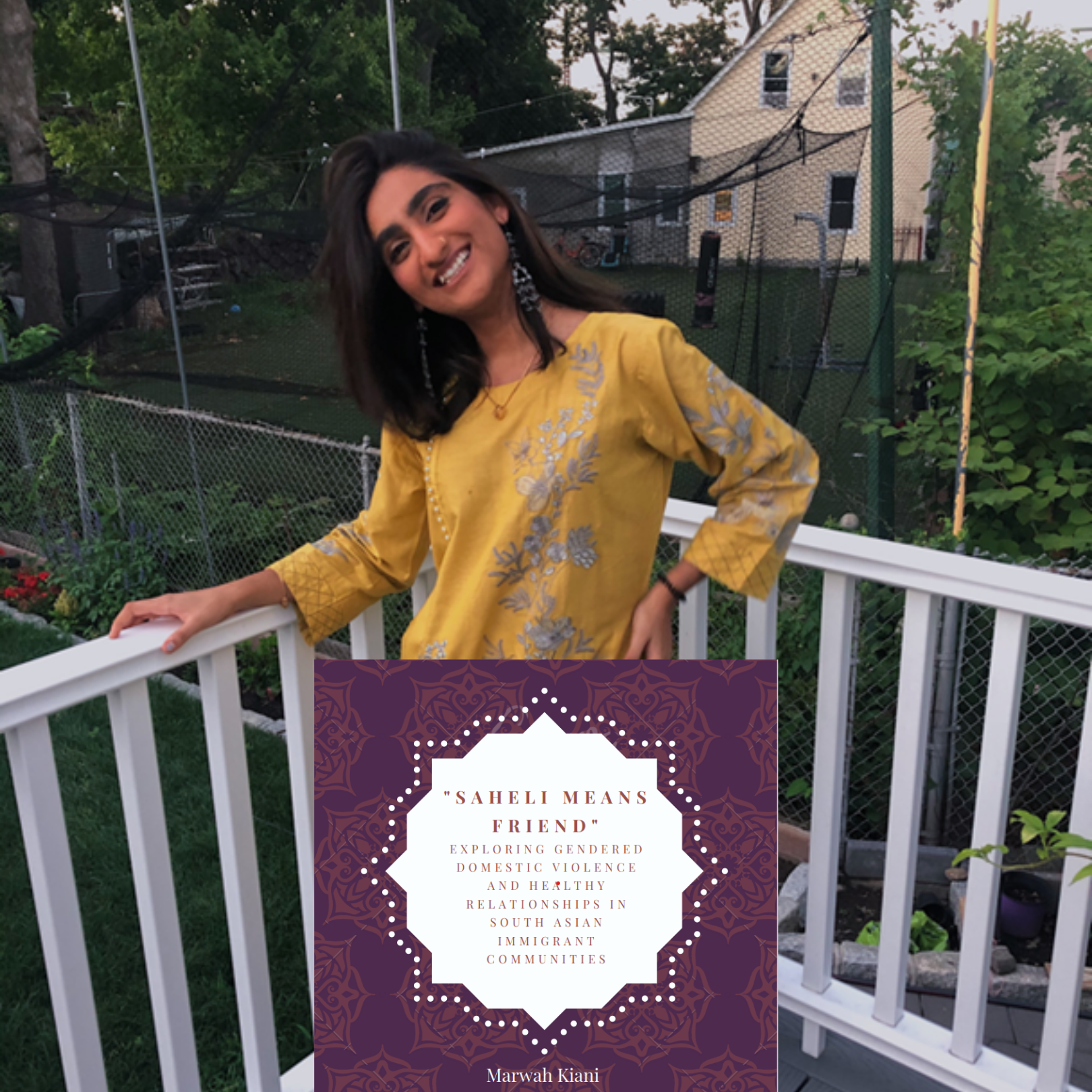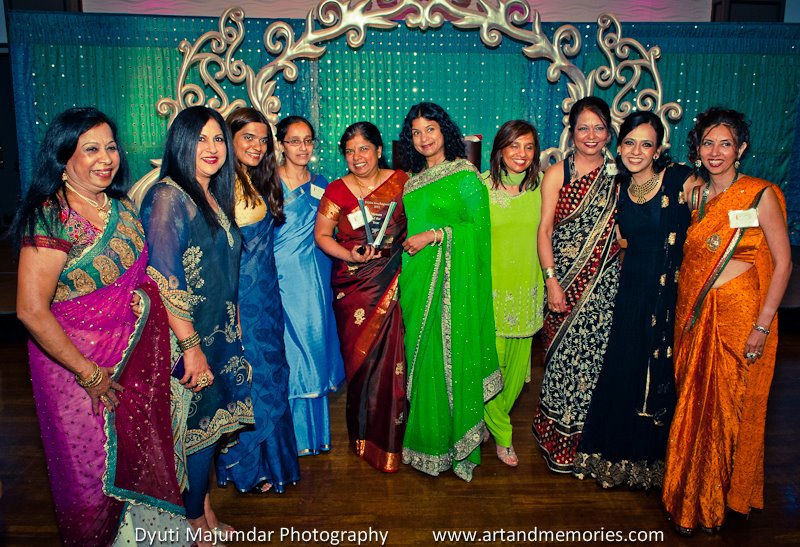By Marwah Kiani
According to the 2010 Census, there are around 5.4 million South Asians living in the United States (U.S Census, 2010). South Asian immigrants in the United States come from a variety of countries, including India, Pakistan, Nepal, Bangladesh, Sri Lanka and the Maldives and live in many communities across the United States, from New York City to Texas and California. (U.S Census, 2010; American Community Survey, 2017). Within this community, domestic violence (DV) against South Asian Immigrant (SAI) women is prevalent. Studies have shown that the prevalence for DV against SAI women ranges from 21%-61%. (Soglin et al., 2020). SAI women experience many forms of abuse including physical, sexual financial and emotional abuse, with a core part of these forms of abuse rooted in the need for abusers to exercise power and control. In relation to DV in South Asian immigrant communities, the study that we conducted aimed to understand the sociocultural dimensions of abuse that SAI survivors experience through interviews with DV advocates and understand ideas of healthy relationships within the South Asian community through focus groups with South Asian community members.
This study was done in partnership with Saheli, a local DV organization that provides tailored support to South Asian and Arab survivors. Saheli played a vital role in connecting us to the participants of our study. In total, we interviewed 7 DV advocates and conducted 3 focus groups with a total of 10 community members. Thematic analysis of the interviews yielded the following themes: 1) “Saheli Means Friend” 2) The “Aunty Factor” 3) Abuse is a Learned Behavior and 4) The Non-Linear Experience of Abuse. In the focus groups, the themes were 1) Relationship Advice (Rishte Nebhana) 2) A Community Affair (Humara Moishra) 3) Kids are Sponges (Bache Dekhne se Sikhte Hain) and 4) Be the Change You Want to See: (Tabdili). Together these findings show exemplified an emphasis on the need to empower women towards independence as a part of leaving abuse, a dualistic attitude towards culture and community that has positive and negative attributes, and lastly a push towards focusing on intergenerational healing to combat cycles of abuse.
When taking a closer look at the themes present in the advocate interviews, many ideas were brought up by the participants. The theme “Saheli Means Friend” refers to how the advocates described their role in supporting survivors, and how Saheli as an organization supported them as well. The name of the theme is actually a quotation by a participant, Advocate 1, who described an instance where she explaining to a non-South Asian survivor what the name of the organization meant. I felt like the idea of friendship encompassed what the advocates do, because they described different forms of support. Many participants spoke about emotional support, and other spoke of structural support in the form of financial empowerment, immigration lawyers etc. At the core of it, participants alluded to meeting survivors where they were at, and providing them services based on the place where they were in their experience and processing of it. When turning to the “Aunty” Factor, advocates spoke about community and the role of culture in community very dualistically; both has pros and cons respectively that influenced the experience of abuse. For many women, the community was a source of solidarity, for other women, certain norms and taboos around divorce made it difficult to leave. However, many advocates emphasized how these patterns of abuse were not specific to just South Asian women, and very much spoke about the root of abuse as power and control, a core idea present in Abuse is a Learned Behavior. Here, advocates did not blame culture for abuse, but turned to ideas of masculinity and power dynamics when discussing why abuse occurs, citing 3 important aspects of abuse: 1) power and control, 2) developing dependency on the abuser and 3) learning abuse through intergenerational transmission. Lastly, advocates spoke of different aspects of the experience, such as barriers to leaving, turning points for survivors, forms of empowerment etc. Here, the most important to thing to note was the fact that advocates spoke about abuse in a non-linear fashion, hence the name The Non-Linear Experience of Abuse. These means that there was no one step-by-step experience of abuse, for example, for some women, factors that are reasons to leave serve as barriers for others. This points to a pressing need of personalized and wholistic services, that are void of assumptions of what a survivor faces and how she should process.
So much of what the advocates described spoke to how Saheli as an intervention focused on supporting survivors in healing from the trauma of an abusive experience, or how to escape an abuser. However, the focus of our focus groups was to try and understand how we can prevent abuse through promoting healthy relationships. Here, community members affiliated with Saheli reflected on how they grew up, how that influenced their ideas of healthy relationships, and how they think about healthy relationships now. Participants spoke a lot about what in general makes a healthy relationship, which we see in the theme Relationship Advice (Rishte Nebhana [Cultivating Relationships]). Here, a core feature of partnerships that advocates spoke about was respecting boundaries and personhood. This pushed against the idea of dependency development seen in the first part of the study, as participants spoke about the importance of independence and space in ensuring a healthy relationships. There were also parallels present in the two parts of the study in the second theme, A Community Affair (Humara Moishra [Our Society]). Here, participants spoke about how community members and norms could be both helpful in conducting relationships, like the idea of respect, but how they can also make healthy relationships hard, like through certain rigid gender norms. When reflecting on what norms and values they saw present in their own childhood, participants spoke in the third theme, Kids are Sponges (Bache Dekhne se Sikhte Hain[Kids Learn from Watching]), about how witnessing parent and family dynamics influenced them greatly. Here, all participants spoke of a strong maternal figure in their lives, but specific that when their mothers focused on the needs of the men of the household, they picked up an entirely different lesson than when participants saw their mothers also put their needs equal to their fathers’. This small detail really showed how it is not just who has the say in the relationship that is important, but whose needs the decisions are centered around that defined a relationship. Participants also reflected on how they now view relationships, based on how they have lived their lives, and what they tell their kids and the following generations. Here, in the last theme, Be the Change You Want to See (Tabdili [Change]), participants emphasized how important it was to not only empower women, but to raise men with the responsibility of enacting progress and respecting women and their choices. For them, breaking the cycle of abuse across generations required the role of men doing the work too.
Based on all these findings, it is clear that experiences of abuse are multifaceted and complicated. However, we also see that abuse is passed down through generations, and we must promote ideas within our communities that push forward aspects of healthy relationships. Yet, this does not mean expelling our cultural and ethnic roots—there is strength and pride in being South Asian, something that almost all participants spoke to, and it is possible bring progress without degrading our entire culture. Often other DV organizations can stereotype South Asian survivors, and normalized abuse in our communities, but the fact of the matter is that abuse exists in all communities, but it is never ok.
About Marwah Kiani
Marwah Kiani is a senior at Tufts University majoring in Community Health, minoring in Religion and on the pre-medical track. At Tufts, she is involved in the MOTHER Lab and its undergraduate branch, MARCH as a research associate and executive board member, respectively. She just recently completed her thesis in partnership with Saheli, which focuses on exploring sociocultural factors involved in domestic violence against South Asian women, as well as ideas surrounding healthy relationships in the South Asian community. Her interests lie primarily in maternal and reproductive health, and she hopes to eventually pursue a MD/MPH.



